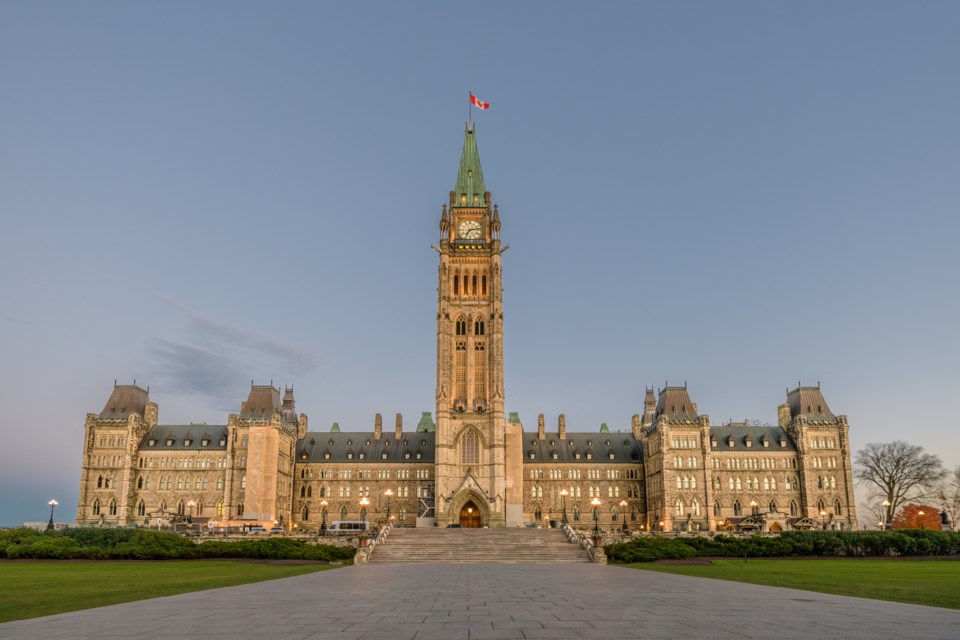Has anyone else noticed how secretive things are getting?
I don’t remember another time when “secrets” have played a role in legal and political proceedings as often as they have lately. In a top-secret world, we need journalism more than ever, but journalism jobs are disappearing, and tech giant Meta is making it harder for the Canadian public to access local news stories.
Last week, federal politicians shut down hearings about the ArriveCan app after they read a “scary” secret report, the Globe and Mail reported. The hearings were looking into the high cost of the ArriveCan app, but after reading the report by a federal investigator, politicians said continuing the hearings could put investigations by the Canada Border Services Agency and the Royal Canadian Mounted Police at risk.
Canada is in the midst of an inquiry into foreign interference in our elections and the subject of secrecy has loomed over it from the start, with most of the documents involved classified as “top-secret” or higher, the CBC reported. The balance between transparency and national security is going to be a very challenging line to walk, but it’s essential because of the high stakes – our democracy itself is at risk.
The same day federal politicians shut down the ArriveCan hearings, former RCMP intelligence director Cameron Ortis was sentenced to 14 years in prison for breaching Canada’s secrets law, the Globe also reported. In the first case of its type in Canada, the judge called Ortis an “enigma” and said, “There was no tangible evidence of a motive.”
Ortis testified in his own defence and maintains his innocence, but his testimony was conducted in secret and his lawyers said national security law prevented him from telling the whole story.
In 2022, a secret hearing took place in B.C. Supreme Court in Vancouver. Reporters weren’t allowed in the courtroom and the case was referred to in court documents as “Named Persons V. Attorney-General of Canada, the Vancouver Sun reported. No reasons for the secrecy were given. Lawyers for Postmedia, the company that owns the Vancouver Sun, tried to fight the secrecy, but the Appeal Court shot them down.
As a very curious person, I can’t stand it when people keep secrets from me. But this is bigger than just me. It’s a serious issue hampering our society from several angles.
Canada has a principle of open courts, which should only be restricted when the public interest is at risk. That makes sense when a minor is being charged, for instance. But when the reasons for the secrecy are unknown, it’s impossible to hold power to account – one of the most important tenets of journalism.
At the same time as the rise in secretiveness, we have a decline in the press. Journalists are being laid off at an alarming rate, including 4,800 positions at Bell Media this week and about 800 jobs at the CBC over this year. Canadian news stories can no longer be shared on Facebook or Instagram, making it even harder for journalists to reach the public.
For those on the outside of journalism looking in, it might be good to explain that for the last century and longer, news was paid for by advertising. It was a neat little business arrangement that worked. Advertisers wanted to get in the paper or on the radio, and their messages, which were clearly identified as advertising, ran alongside news. This was a great business model for journalism, which thrived until the arrival of the Internet. Once advertisers no longer needed newspapers or radio or TV and could advertise for much cheaper online or on their own website or social media channels, the journalism industry started to decline. News providers haven’t quite figured out a sustainable business model for journalism, but they’re working on it.
This doesn’t mean journalism isn’t needed – far from it. As a journalist, I’m biased in favour of a robust media complete with competition for scoops and audiences, time for deep investigations and human-interest stories and the ability to inform an engaged public.
Despite my bias, it should be obvious that in an increasingly polarized world, splintered by misinformation, disinformation and foreign interference, we need the discipline of journalism more than ever. And in a world of extreme secrecy, where powerful bodies like Parliament or the nation’s highest courts are stymied by conflicts between national security and transparency, journalism’s value is paramount.
Tracy Sherlock is a freelance journalist who writes about education and social issues. Read her blog or email her [email protected].



